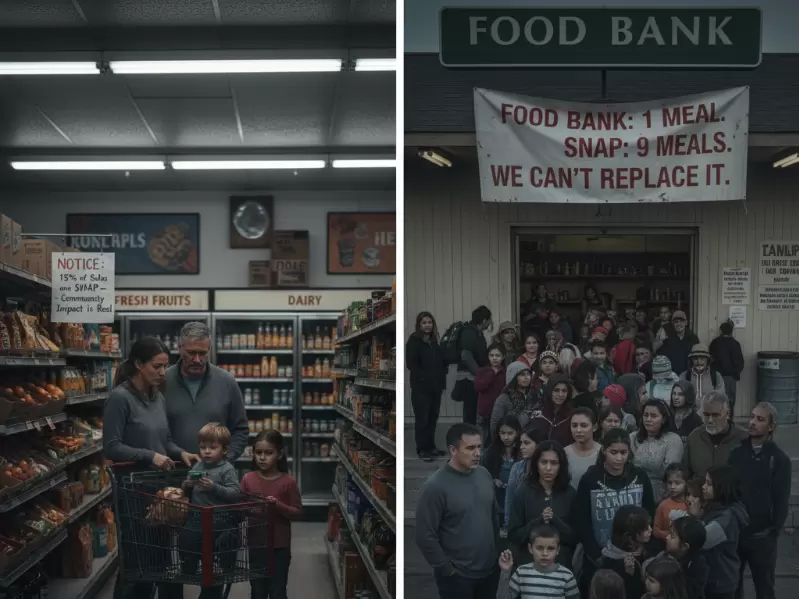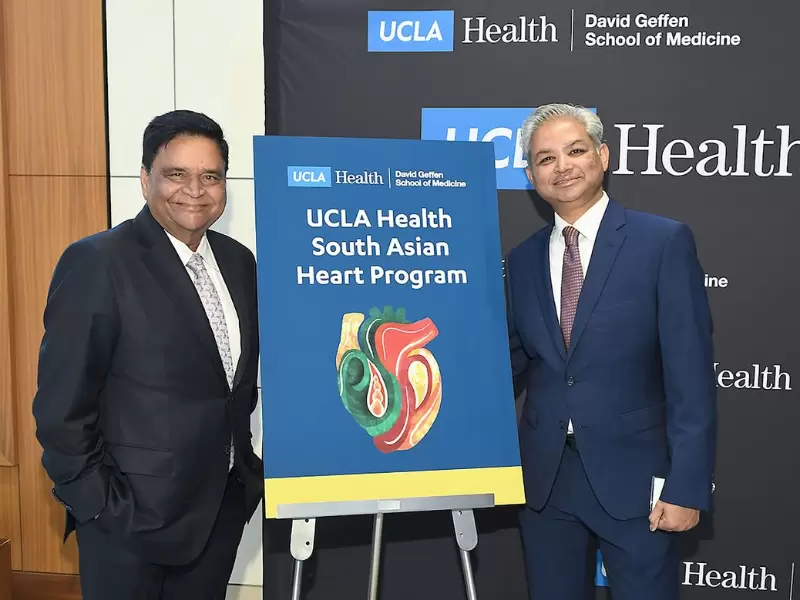42 million Americans will lose food assistance in November amid government shutdown
As the Holidays Approach, Families Face New Threats to Food Assistance
 Representative image / AI generated
Representative image / AI generated
At a time when families across the country should be coming together around the table this November, many are instead worrying about whether they will have enough food to share. Recent actions by the Trump administration and provisions from the Republican “Mega Bill” passed this summer threaten to take food off those tables, slashing vital nutrition assistance for 42 million Americans. On Nov. 1, they will lose their access to the Supplemental Nutrition Assistance Program (SNAP) amid the ongoing federal government shutdown.
Panelists at the American Community Media briefing warned that these changes to the Supplemental Nutrition Assistance Program (SNAP) could leave countless families struggling to afford groceries just as food prices remain high and the holiday season begins. Joseph Llobrera, Senior Director of Research for Food Assistance Policy, Center for Budget and Policy Priorities, Eric Valladares, Executive Director, Family Connections, and Gina Plata-Nino, Interim Director for SNAP, Food Research & Action Center warned of the misery ahead.
SNAP aid is distributed to low-income people through reloadable debit cards that they can use to buy essential grocery items. In California, the SNAP program is known as CalFresh. More than 5.5 million people, including one out of 8 children in the state, rely on Cal fresh receiving a reported average of $187 per month in grocery benefits, said the panelist.
California, as well as 30 states, have said they cannot backfill the federal government’s cuts. The “One Big Beautiful Bill” passed by Congress earlier this year, would reduce the SNAP budget by $287 billion over the next decade. New work requirements have also been imposed for determining eligibility.
Women, Infants, and Children ( WIC) is on the hook as well
Jamie Bussel, Senior Program Officer, Robert Wood Johnson Foundation said yet another critically important public health and nutrition program, Women, Infants, and Children ( WIC) is legally on the hook as well. The WIC program is another critically important federal food and nutrition program that provides food, formula, nutrition education, breastfeeding support, and a host of other healthcare services to pregnant, postpartum, women, infants, and youngest children.
“Over 7 million babies and families who participate in the WIC program will not be able to access food, formula, breastfeeding support, etc. These are our neighbors, our colleagues, our friends, our family. This is all of us,” said Bussel.
This crisis that we're talking about today is not happening because Congress doesn't have the money but because our policymakers are choosing to prioritize politics over people.
Ripple effect of the closure of SNAP
Grocery stores in areas across the nation, and particularly in rural areas, are going to be hit hard. Fifteen percent of total grocery sales are with SNAP purchases. For every dollar spent,in SNAP benefits generates $1.80 in local economic activity.
Food banks are likely to be completely overwhelmed. They do not replace the SNAP program. “To give you a sense, for every meal a food bank is able to provide, the SNAP program provides 9,” said Bussel.
SNAP is a critical and usually temporary support for millions of families in this country. SNAP is one of the most effective anti-poverty and pro-growth programs we have in America.
A recent survey by the Robert Wood Johnson Foundation found that there is extraordinary consensus amongst conservatives and liberals on this issue.
Judges pass judgement on SNAP
Twenty-five states, including California,and the District of Columbia filed a lawsuit on October 28, against the Trump administration for the abrupt shut-off of SNAP benefits. warning that millions of Americans could soon lose access to food aid.
Massachusetts US District Judge Indira Talwani wrote in her decision that the states who sued are likely to win in court on their claim that "Congress intended the funding of SNAP benefits, at a reduced rate if necessary, when appropriated funds prove insufficient".
Judge Talwani also wrote that the Trump administration "erred in concluding" that the USDA is blocked by law from tapping the emergency reserves in the contingency fund when there is a lapse in federal funding.
The rulings said the government must pay for the Supplemental Nutrition Assistance Program (SNAP) benefits using emergency funds.
Responding on social media, President Donald Trump said he has instructed government lawyers to ask the courts how the administration could legally fund SNAP.
"Even if we get immediate guidance, it will unfortunately be delayed," Trump said.
ADVERTISEMENT
ADVERTISEMENT
E Paper
Video



 Ritu Marwah
Ritu Marwah 













Comments
Start the conversation
Become a member of New India Abroad to start commenting.
Sign Up Now
Already have an account? Login